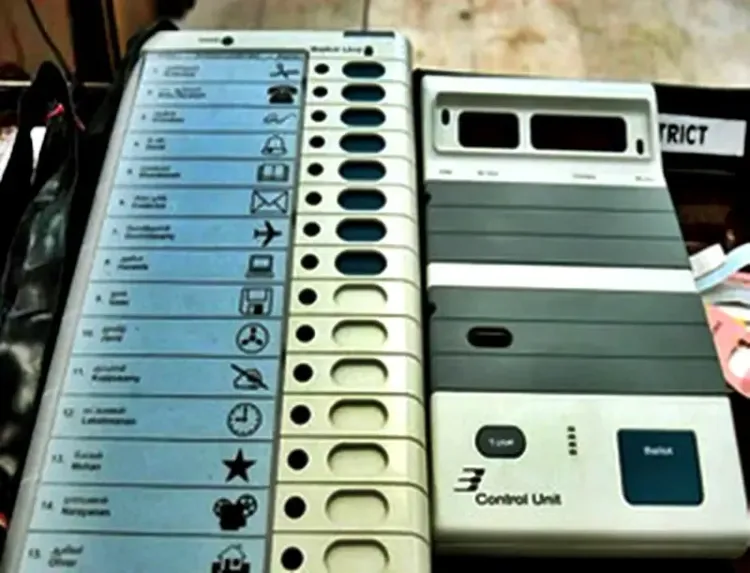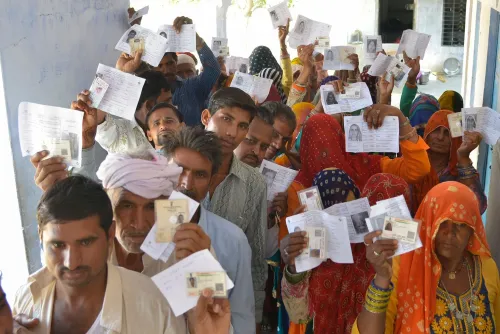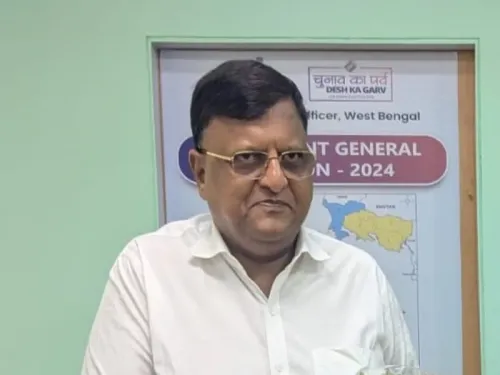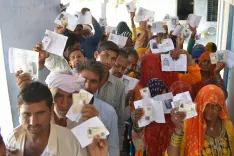Indian EVMs' Security: No Internet or Bluetooth, Says ECI in Response to US Hacking Claims

Synopsis
Key Takeaways
- Indian EVMs utilize advanced technology with no Internet or Bluetooth.
- ECI asserts that Indian voting systems have more security measures than US systems.
- Supreme Court of India has validated the use of EVMs.
- Over 5 crore VVPAT slips have been verified during counting.
- BJP criticizes Congress for their inconsistent stance on EVM reliability.
New Delhi, April 11 (NationPress) A statement from a US official regarding potential hacking of electronic voting systems in their country was met with a sense of calm by the Election Commission of India (ECI). Sources emphasized the advanced technology of Indian EVMs, asserting that the absence of Internet and Bluetooth during the voting process acts as reliable safeguards against any type of manipulation.
The US official, in a viral video spreading across social media, expressed concerns about election integrity while discussing an ongoing investigation in the US into perceived ‘flaws’ within electronic voting systems, advocating for a return to paper ballots.
ECI sources reassured the public, stating that the US electronic voting systems cannot be directly compared to India's EVMs, which have several additional security features integrated into their design.
“Some nations utilize Electronic Voting Systems that incorporate various systems, machines, and processes, including private networks and the Internet. In contrast, India employs EVMs that function like straightforward, precise calculators and are incapable of connecting to the Internet, WiFi, or Infrared,” an ECI source explained.
In a bid to reassure voters and the Indian populace, an official from the election panel stated: “These machines have withstood legal scrutiny from the Supreme Court of India and are consistently inspected by political parties at numerous stages, including conducting mock polls before the actual voting begins. Over 5 crore voter verifiable paper audit trail (VVPAT) slips have been verified and matched while counting, in the presence of political parties.”
Previously, the US official mentioned in the video shared on social media platform X: “We have proof of how these electronic voting systems have been susceptible to hackers for an extended period, making them vulnerable to manipulation of the vote results, which further emphasizes the need to transition to paper ballots nationwide to restore voter confidence in our elections' integrity.”
The ongoing discussion in the US about the weaknesses of electronic voting systems coincides with the Opposition parties in India, led by the Congress, making multiple attempts to pin the blame for their electoral losses on EVMs.
Following the Congress’ loss in the Haryana and Maharashtra Assembly elections in 2024, they attributed their defeat to the ‘biased and rigged’ EVMs.
Prominent figures like Congress leader Rahul Gandhi, Nationalist Congress Party chief Sharad Pawar, and Jharkhand Mukti Morcha General Secretary Supriyo Bhattacharya have consistently questioned the reliability of EVMs.
Conversely, the BJP has persistently criticized the Opposition for their inconsistent narratives regarding EVMs.
“When Priyanka Gandhi wins, EVMs are acceptable. When they claim victory in Jharkhand, EVMs work perfectly. However, when the results in Maharashtra don’t favor them, suddenly EVMs are deemed faulty or dishonest,” remarked BJP National Secretary Manjinder Singh Sirsa in November.
“When they secured 99 seats in the Lok Sabha elections, Rahul Gandhi celebrated, proclaiming they defeated PM Modi. But if the BJP wins 240 seats, then EVMs are at fault. This inconsistency is why they lack credibility,” he added.









